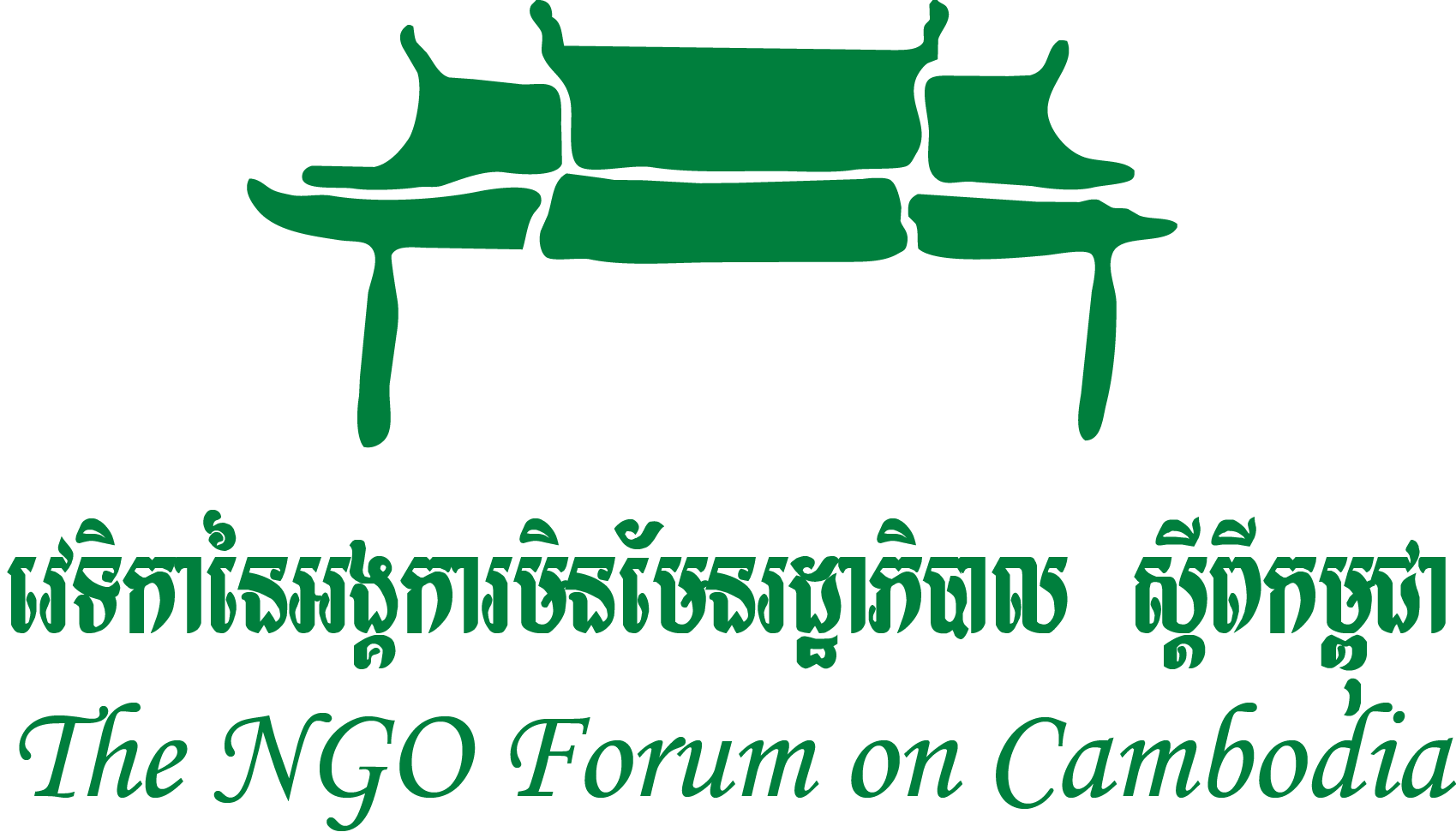National Learning Workshop: Promoting Climate Resilient Communities for Cambodia
- ngofmail
- Jul 19, 2017
- 3 min read

NGOF office; 19th July 2017: Fifty of the NGOs Environment and Climate Change Alliance (NECA) of the NGO Forum on Cambodia together local communities, local authorities and CSO partners discussed and shared experiences in the National Leaning Workshop on Promoting Climate Resilient Communities for Cambodia. This national learning workshop co-organised by the NGO Forum on Cambodia and its NECA members; Action on Poverty (AOP) and Cambodian Organization for Children and Development (COCD).

Together, Tek Vannara, Executive Director of NGOF and Mr. Ung Pola, Cambodia Program Coordinator of Action on Poverty welcomed and pretty mentioned this workshop contributed to increasing understanding of climate change impacts on natural and socio-economic systems, providing opportunities for cross-learning and the replication of good practices in vulnerability assessment, risk mapping, mitigation for CSO partners in Cambodia, as well as other government agencies and regional partners in future.
During this workshop, there are two best practices on Climate Change Adaptation (CCA) mainstreaming sharing and discussing. This one-year pilot phase of the project “Promoting Climate Resilient Communities” was implementing a pilot Project with the aim to build climate change adaptation capacity of communities and establish good practices for mainstreaming across all programs. The project implemented a range of practical adaptation measures designed to strengthen livelihoods, improve water security and protect natural resource assets. This pilot is implementing by Cambodian Organisation for Children and Development (COCD) in Veal Veang district, Pursat Province.

Composedly, Mr. Hoeun Houn, Executive Director of Our Objective Organization (OOO) and NECA Steering Committee members also shared his organization experience and the significant achievement for CCA mainstreaming into CIP/CDP to workshop.
Both sharing concrete highlighted the contextually-appropriate vulnerability assessment methodology and risk mapping tool and also contributed to enhancing CSO members and partners ‘capacity to assess key climate risks. It achieved this through raising awareness of community reported climate change impacts among key civil society actors, local government and communities. The project used a localized methodology to assess climate vulnerability (VRA) and mapped natural and built infrastructure assets using google maps to assist communities and their development partners to plan future adaptation.
Recognizing that community level awareness of climate change impacts and adaptation strategies is very low, the projects will seek to motivate build capacity in target areas by raising awareness and understanding of climate risks and locally appropriate strategies and plans to respond and adapt. The focus of this component will be on making information about climate change impacts, climate services and pro-poor strategies accessible, relevant and useful to communities, especially for vulnerable groups such as women, youth and children.
A two-day training course on concept of climate change/ its root causes and impacts and GPS waypoints was conducted.

The following training focused on Vulnerability Reduction Assessment (VRA) tools and methodology in combination with C-CAP (Coastal Community Adaptation Project) Climate Change Risk and Asset Mapping methodology.
Our strategy is to follow the method of focus group discussion by using H-form and trend analysis as the useful tools for VRA collected information from the target community, and the expectation of the focus group discussion is to promote self-disclosure among audient. Equipment was flip chart, marker, that we use 4 questions as below. Each group discussed the four following questions.
• What current experience do you face because of climate change and what is the effect on your life? • What happens if the situation gets worse? • What prevents adaptation at the moment? • What are the proposed actions to deal with climate change?
The project facilitated a participatory process of developing, testing and implementing climate change adaptation and disaster risk reduction plans that are based on the specific vulnerabilities and capacities identified by the target populations.
Once again, one of NECA strategic advocacy, we agreed to achieve the specific objective of at least 60% of NECA’s target areas integrate CCA into the CDP/CIP with community participation and appropriate financial support by end of 2017, both top-down and bottom-up strategy approach are complemented with each other. The support of NGOF as well as other related partners such as DCA/CA, UNDP, Plan International, and especially NCDD secretariat as the technical assistants/supervisors who play important role particularly at the national level will be necessary and bring hopeful for NECA members to fulfil their commitment in order to mainstream CCA into CDP/CIP at their target areas set in this advocacy strategy and action plan.

The assessments and risk maps provided communities and government with an evidence base to inform future planning and policies to build climate resilience.




